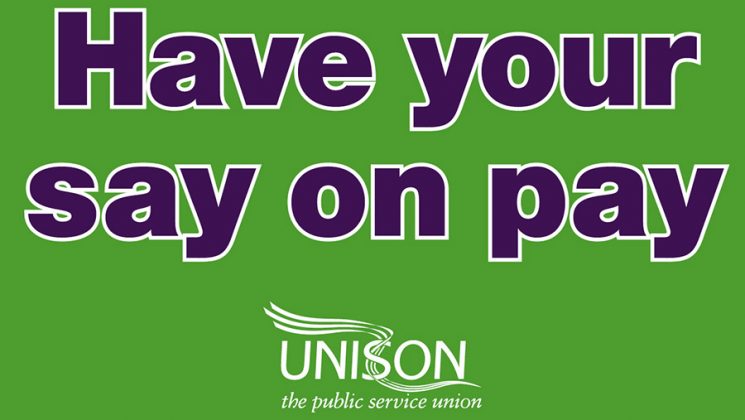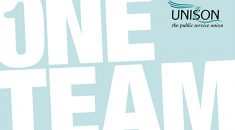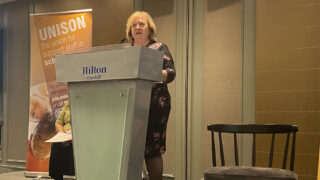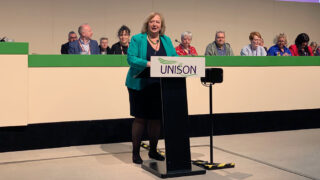“Now is the time to have your say – and use your vote – on your pay.” That is the message from UNISON general secretary Christina McAnea, as the union consults with members across service groups on pay.
Workers who have kept vital services running throughout the pandemic – often at risk to their own health – deserve a proper pay rise. Whatever the workplace, pay is likely to be an issue. Even before COVID-19, more than a decade of austerity has seen public service pay stagnate.
With inflation running at 3.9% (RPI), that’s a big increase in the cost of living. UNISON is driven to ensure the best outcome for hardworking members – and you get to decide exactly what that is.
Across the union, different service groups are coordinating to secure a fair pay deal for UNISON members. It’s vital that members have their say. Over the summer, UNISON is consulting across service groups on the best pay deals for members.
Ms McAnea said: “With ballots taking place around the UK, it’s never been more important to make sure your employer is in no doubt how you feel about their pay offer.
“With inflation rising sharply across the economy, members delivering public services across the UK are seeing their incomes squeezed. Employer offers below inflation are a pay cut for working people – members deserve much more than a pay freeze. Putting money in the pay packets of hard-working people will provide the boost the economy needs.”
Specific information for members working in different service groups is available below.
Health
After a long drawn out pay review body process, the government has decided to award NHS staff in England a 3% pay increase, backdated to 1 April this year. This is not a pay offer – it is now being implemented.
UNISON’s health service group executive cannot recommend the award because it stretches the pay gap, only delivers the union’s £2k position for the highest bands and fails to embed the real living wage.
UNISON members will be deciding whether they want to work together to challenge the government’s pay award. UNISON’s NHS pay vote – www.nhspay.org – opened for England on 30 July and will run until 10 September 2021.
In Northern Ireland, decisions on health service pay are taken by the executive. UNISON is seeking a response from the health minister to the decision to award a 3% increase for staff in England and details about what extra funding will flow to Northern Ireland for a pay award for health workers here.
Once the region has these details, it will consult with members on the way forward.
Health is the main area is devolved in Wales, where there is frustration that the Westminster government hasn’t properly funded this. In other words, this is not a 3% pay offer, but an imposition by Westminster, so there is no negotiating table to go back to.
In March, the Welsh government announced that all health and social care staff will be eligible for a £500 payment in recognition of their efforts during the pandemic. This one-off payment is equivalent to £735 per person, to cover the basic rate of tax and national insurance contributions incurred. However, after deductions most people will only receive £500.
Local government
In February 2021, the national joint council (NJC) pay claim was submitted by UNISON, Unite and the GMB, which together represent 1.4 million local government workers in England, Wales and Northern Ireland. The claim was for a 10% pay increase for local government workers. There was also a separate conditions claim.
Then in May, local government employers made a pay offer of 1.5% to council and school staff. On 27 July, a revised offer was made, of 2.75% to those on the lowest pay grade and 1.75% to everyone else.
UNISON will be consulting members, beginning in late August, with a strong recommendation to reject the offer. To find out more and to access resources, click here.
In Scotland, UNISON – together with Unite and the GMB – has condemned the decision of the Holyrood government not to provide additional funding to improve the local pay offer.
Anger was heightened after allegations were made that cabinet secretaries argued that local government workers were ‘not on a par with health workers and so could not expect a similar offer’.
UNISON Scotland head of local government Johanna Baxter said: “If these comments are true, they are a disgrace and nothing short of a slap in the face to every single local government worker across Scotland.
“For government ministers to stand on their doorsteps and clap home care workers for their pandemic response, but then in private say they are ‘not on a par’ with their colleagues in health. is the height of hypocrisy and disrespect.”
All three unions are preparing for formal industrial action ballots.
In Northern Ireland, members are being encouraged to Get Ballot Ready. To reach as many members as possible to take part in the ballot, which will be conducted online or by post, the region is encouraging members to update their membership details using the online form here.
Members can also watch a short film urging them to Get Ballot Ready here.
Education
Almost all schools in England, Wales and Northern Ireland are covered by the local government NJC pay negotiations (see local government section above). Schools support staff in Scotland are covered by the separate Scottish local government pay negotiations (also see local government above).
Higher education members at 48 different employers are currently being balloted on the imposed sector pay freeze for 2020-21.
The employers have made a final offer of a pay rise for 2021/22, amounting to an increase of 1.5% for the majority of HE staff from the beginning of this month.
Members were consulted on the offer, which they rejected, and branches are now being asked if they wish to ballot for action. You can read about the campaign here.
The higher education Scottish ballots on the 2020-21 pay freeze opened on 2 August. The English ones close on 10 August. The ballot in Northern Ireland closes in September. Until 10 August, ballots are open across all three nations. There are no ballots in Wales. Higher education has UK wide pay-bargaining and branches were given the option to ballot or not.
A number of universities have implemented one-off, unconsolidated payments. For example, in Wales, Cardiff University staff received £250 to thank them for their work throughout COVID-19.
In further education, a pay claim for English colleges has yet to be submitted. In Wales, one has been submitted, which calls for, among other things, “A significant increase in pay to reflect the efforts of the last year and the below inflation raises for the past decade or more”.
In Scotland, a claim is due any time now. Northern Ireland follows NJC pay awards for directly employed staff.
Youth and community workers
UNISON’s national youth and community workers’ committee ran a branch consultation on the joint draft national committee pay claim in May. A pay claim was submitted in June, and joint secretaries will hear back from employers this month.
The Food Standards Agency
The Food standards Agency is covered by the Civil Service pay freeze, imposed by the UK government. UNISON is submitting a joint trade union pay claim asking that the agency makes a business case to the Cabinet Office and the Treasury for a proper pay rise.
Members will be being asked to fill in a survey via a regular newsletter update later this month.
Police and justice
Police staff members in England and Wales have been told that the employers want to impose the government’s pay freeze on them this year. This approach has been rejected by the trade unions.
UNISON’s police staff committee will be meeting early this month to consider a response.
Energy
It’s been a challenging 12 months with the union’s key employers, facing problems that have led to job losses and tough negotiations on pay and conditions.
Last year’s dispute with British Gas was resolved following a substantially improved offer that was backed by members, but the dispute was a sobering reminder of the inadequacy of employment rights in the UK.
Elsewhere’ the union remains at odds with Cadent Gas on its offer to staff of 1.5%, despite large profits generated by members’ efforts.
WET
The WET service group is made up of members in the water, environment agencies and transport sectors.
The water companies have concluded 2021 pay settlements that range from 0-2.3%. There is an ongoing ballot on the Environment Agency pay offer – the agency is bound by UK government pay policy and the offer is a flat rate of £250 for those earning below £24k, and a zero consolidated rise for anyone earning above £24,000.
In Natural Resources Wales, pay negotiations are yet to start and the Scottish Environment Protection Agency is also bound by the Scottish government’s pay policy of 2%.
Finally, transport employers mirror the local government NJC pay award, and consultation is ongoing on the revised offer of 1.75% in that sector. Whatever is awarded will have a knock effect on our members in transport.




